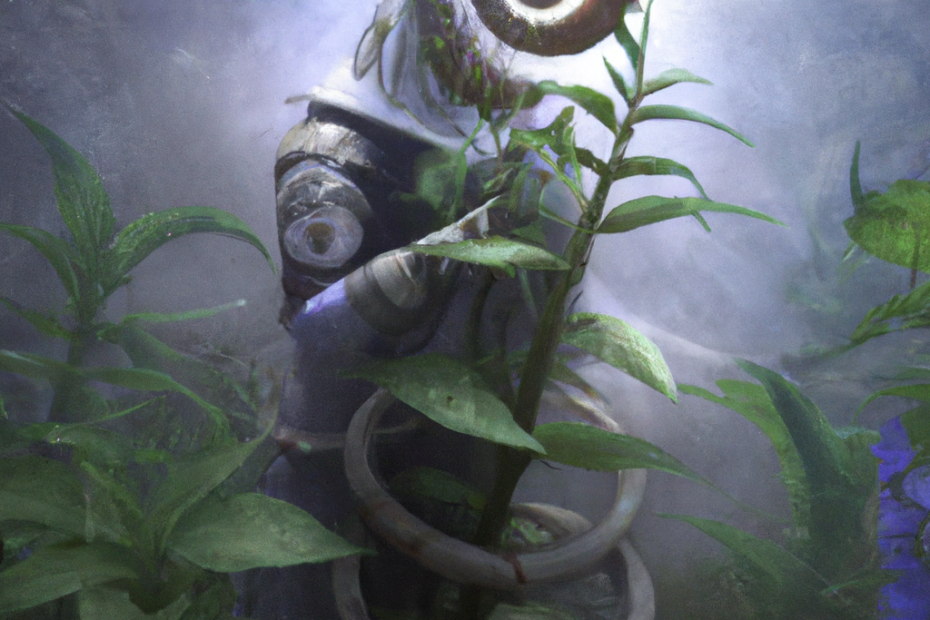Salvia, also known as Salvia divinorum, is a psychoactive plant that has gained popularity for its hallucinogenic effects. In this article, we will delve into the key aspects of Salvia in the context of Mississippi. From understanding the effects of Salvia to exploring its legal status in the state, we will address the laws, penalties, and risks associated with its possession, consumption, sale, distribution, and cultivation. We will shed light on the alternatives to Salvia, as well as the potential risks and avenues for seeking help in case of addiction. Whether you are seeking to understand the legal landscape or are interested in the broader implications of using Salvia in Mississippi, this comprehensive guide aims to provide clarity and valuable insights.
What Is Salvia?
Salvia is a hallucinogenic plant that is often referred to as sage and is known for its psychoactive effects. It belongs to the mint family and is native to southern Mexico and Central and South America. The active compound, salvinorin A, interacts with the kappa opioid receptors in the brain, leading to altered perception and hallucinations. When consumed, whether through smoking, chewing, or brewing into a tea, it induces intense but short-lived psychedelic experiences.
Although salvia has gained popularity for its hallucinogenic properties, its legal status varies in different locations, and there are growing concerns about its potential risks and effects on mental health.
What Are The Effects Of Salvia?
The effects of salvia consumption are known to be potent and psychoactive, often leading to intense hallucinations and altered perception.
Users often report a sense of detachment from reality, with their surroundings appearing distorted and surreal. Many individuals describe experiencing visual and auditory hallucinations, such as seeing vibrant colors and hearing strange sounds. This altered state of consciousness can lead to a feeling of time distortion and an overall disconnection from the present moment. These effects typically last for a short duration, but the impact on perception can be profound, often leaving a lasting impression on the individual’s psyche.
Is Salvia Legal In Mississippi?
The legality of salvia in Mississippi is governed by specific laws and regulations that dictate its status as a controlled substance within the state.
Salvia is classified as a Schedule I controlled substance in Mississippi, according to the Mississippi Controlled Substances Law. This categorization indicates that salvia is considered to have a high potential for abuse, has no accepted medical use, and lacks acceptable safety for use under medical supervision.
The statutes and regulations in Mississippi strictly control the cultivation, possession, sale, and distribution of salvia. It is essential for individuals in Mississippi to be aware of these legal parameters to ensure compliance with the state’s laws regarding salvia.”
What Are The Laws Regarding Salvia In Mississippi?
Salvia laws in Mississippi encompass a comprehensive set of statutes and regulations that govern its possession, consumption, sale, and distribution within the state.
Is Salvia Possession Legal In Mississippi?
The possession of salvia in Mississippi is subject to specific enforcement measures and legal restrictions, outlining the permissible limits and prohibited activities related to its ownership.
Individuals in Mississippi must be aware that the possession of salvia is regulated under state law, with strict enforcement measures in place. The permissible limit for salvia possession is defined by the state statutes, and any activities exceeding these limits are considered illegal. It is crucial for individuals to understand and comply with these legal restrictions to avoid potential legal consequences and penalties.
Sale and distribution of salvia may also be regulated by specific laws to ensure public safety and wellbeing.
Is Salvia Consumption Legal In Mississippi?
The consumption of salvia in Mississippi is regulated by specific laws and regulations that define the permissible use and restrictions associated with its psychoactive effects.
These legal frameworks aim to ensure that the consumption and distribution of salvia are in line with state regulations. Mississippi law prohibits the sale of salvia or its derivatives to minors and restricts its use in public areas. The state has implemented measures to control the cultivation and sale of salvia through licensing requirements and quality control standards. These regulations are designed to address the potential risks associated with salvia use and promote responsible and legal consumption within the state.
Is Salvia Sale And Distribution Legal In Mississippi?
The sale and distribution of salvia in Mississippi are subject to specific legal prohibitions and regulations that govern its commercial transactions and supply chain.
These regulations include:
- The prohibition of sales to individuals under the age of 18.
- The requirement of proper labeling and packaging.
- Adherence to strict quality control standards.
There are specific licensing and registration requirements for businesses involved in the sale and distribution of salvia. It is crucial for retailers and distributors to stay updated on the evolving legal landscape to ensure compliance with the state laws regarding the sale and distribution of salvia in Mississippi.
Failure to comply with these regulations can result in severe legal consequences and penalties.
Is Salvia Cultivation Legal In Mississippi?
The cultivation of salvia in Mississippi is governed by specific authorities and regulations that define the permissible methods and restrictions associated with its growth and production.
The Mississippi Department of Agriculture and Commerce plays a crucial role in overseeing the cultivation of salvia, ensuring compliance with the state’s legal framework. Permissible methods for cultivating salvia may include outdoor and indoor cultivation, subject to adherence to zoning regulations and land use laws.
There are restrictions on the sale and distribution of salvia plants, with specific licensing requirements for commercial production. These regulations aim to safeguard public health and prevent the illicit use of salvia for recreational purposes.
What Are The Penalties For Violating Salvia Laws In Mississippi?
Violating salvia laws in Mississippi can lead to severe penalties and enforcement actions, with specific consequences outlined for first offenses and subsequent violations.
First Offense
A first offense for violating salvia laws in Mississippi may result in significant penalties, including fines, legal proceedings, and potential drug enforcement actions.
Individuals found guilty of a first offense for violating salvia laws in Mississippi could face substantial fines, court appearances, and potential seizure of assets related to the illegal activity. The legal proceedings for this offense may involve appearing in court, presenting a defense, and potentially facing a criminal record.
Law enforcement agencies may take action to confiscate any illegal substances and investigate further into the circumstances surrounding the violation.
Subsequent Offenses
Subsequent offenses for violating salvia laws in Mississippi carry escalated penalties and legal repercussions, including increased fines, potential criminal charges, and extended enforcement actions.
Individuals found guilty of subsequent salvia offenses may face heightened fines, rising to thousands of dollars, along with the possibility of misdemeanor or felony charges. Law enforcement agencies also have the authority to pursue more rigorous enforcement measures, such as increased surveillance and stricter monitoring of suspected violators. Repeat offenders could encounter severe legal consequences, impacting their criminal record and potentially leading to significant fines, imprisonment, or probation.
What Are The Alternatives To Salvia In Mississippi?
In Mississippi, individuals seeking alternatives to salvia may explore other substances that are legally permissible and controlled within the state, offering varied psychoactive effects and consumption options.
Some legal alternatives to salvia in Mississippi include:
- Kratom, which is known for its stimulating and sedating effects, and is available in various forms such as powder, capsules, and extracts.
- Kava, a plant-based substance that provides relaxation and may be consumed as a tea or supplement.
- CBD products derived from hemp, which are legal in Mississippi and offer potential calming effects without the psychoactive properties associated with THC.
These alternatives present diverse choices for individuals seeking botanical substances with different psychoactive effects and consumption methods.
What Are The Risks Of Using Salvia In Mississippi?
Using salvia in Mississippi poses inherent risks due to its legal status, psychoactive effects, and associated restrictions, potentially leading to legal consequences and adverse psychological impact.
It’s important to note that salvia divinorum, a potent hallucinogenic herb, is not legally regulated under Mississippi state law, thus its sale and possession can result in legal repercussions. The psychoactive effects of salvia can induce intense hallucinations and altered perceptions, leading to impaired judgment and risky behavior. Being caught with salvia can lead to charges and legal consequences, affecting one’s personal and professional life. Therefore, understanding the legal restrictions and potential ramifications is vital to prevent the adverse effects of using salvia in Mississippi.”
How Can Someone Get Help For Salvia Addiction In Mississippi?
Individuals struggling with salvia addiction in Mississippi can seek assistance from dedicated authorities and enforcement agencies that offer support, intervention, and rehabilitation services tailored to address substance abuse issues.
These services may include counseling, therapy, and inpatient or outpatient treatment programs. Law enforcement agencies also play a vital role in ensuring the safety of individuals seeking help, and they work closely with rehabilitation centers and support groups to provide a comprehensive approach to recovery.
In Mississippi, there are helplines and online resources available for those in need of immediate assistance, and community outreach programs further contribute to raising awareness and addressing the challenges associated with salvia addiction.
Frequently Asked Questions
Is Salvia legal in Mississippi?
Salvia, also known as Salvia divinorum, is a psychoactive plant that is not listed as a controlled substance in Mississippi. However, its sale and possession may be restricted in certain counties or cities.
What is Salvia?
Salvia is a plant that is native to Central and South America and has been traditionally used for medicinal and spiritual purposes. It contains the psychoactive compound salvinorin A, which can cause intense hallucinations and altered states of consciousness.
Is Salvia classified as a controlled substance in Mississippi?
No, Salvia is not listed as a controlled substance in Mississippi. However, it is important to check with local laws and regulations as its sale and possession may be restricted in certain areas.
Can I legally purchase Salvia in Mississippi?
It is possible to purchase Salvia in Mississippi, but its sale and possession may be restricted in certain counties or cities. It is important to check with local laws and regulations before purchasing.
Are there any age restrictions for purchasing Salvia in Mississippi?
There are currently no specific age restrictions for purchasing Salvia in Mississippi. However, it is important to check with local laws and regulations, as some retailers may have age restrictions in place.
Is it legal to grow Salvia for personal use in Mississippi?
Growing Salvia for personal use is not illegal in Mississippi. However, its sale and possession may be restricted in certain counties or cities, so it is important to check with local laws and regulations before growing.
John Marston, a seasoned writer since 2009, has penned hundreds of articles on Salvia Divinorum across the web. As a full-time writer at a prominent online salvia retailer, he continues to contribute valuable insights, combining expertise and passion to unravel the diverse facets of Salvia Divinorum. Beyond his writing, John serves as a budtender in the cannabis industry.




